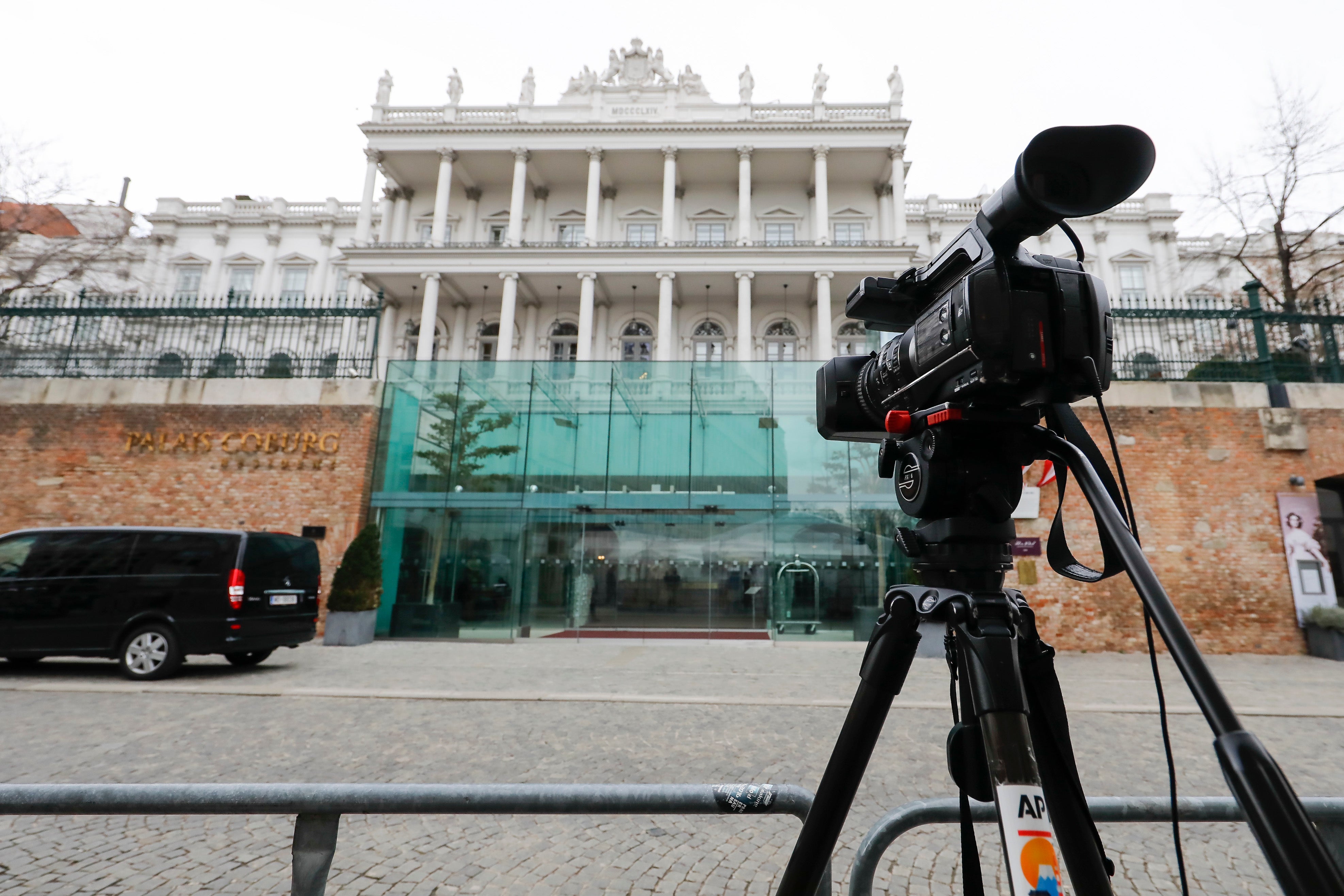Iran nuclear talks resume amid pressure for results
Diplomats from Iran and world powers have reconvened in Vienna to seek a deal reviving Tehran’s 2015 nuclear deal, with pressure mounting for results soon

Your support helps us to tell the story
From reproductive rights to climate change to Big Tech, The Independent is on the ground when the story is developing. Whether it's investigating the financials of Elon Musk's pro-Trump PAC or producing our latest documentary, 'The A Word', which shines a light on the American women fighting for reproductive rights, we know how important it is to parse out the facts from the messaging.
At such a critical moment in US history, we need reporters on the ground. Your donation allows us to keep sending journalists to speak to both sides of the story.
The Independent is trusted by Americans across the entire political spectrum. And unlike many other quality news outlets, we choose not to lock Americans out of our reporting and analysis with paywalls. We believe quality journalism should be available to everyone, paid for by those who can afford it.
Your support makes all the difference.Diplomats from Iran and world powers reconvened in Vienna on Tuesday to seek a deal reviving Tehran s 2015 nuclear accord, with pressure mounting for results soon.
Negotiators from Iran and the remaining parties to the agreement — Britain, France, Germany, Russia and China — got back to work after a break of a little over a week to return to their capitals for consultations.
The United States has participated indirectly in the talks because it withdrew from the accord in 2018 under then President Donald Trump President Joe Biden has signaled that he wants to rejoin the deal.
The accord, formally known as the Joint Comprehensive Plan of Action, granted Iran sanctions relief in exchange for curbs on its nuclear program.
Under Trump, the U.S. reimposed heavy sanctions on Iran. Tehran has responded by increasing the purity and amounts of uranium it enriches and stockpiles, in breach of the accord.
Officials say that the talks are reaching their final stage, though it's unclear how long that might take. The negotiations have dragged on for months, punctuated by a long gap last year caused by the arrival of a hard-line new government in Iran. The current eighth round started just after Christmas.
The three Western European participants have been warning for a while that time is running out for a successful conclusion of the talks. They have argued that the accord will soon become an “empty shell" in light of Iran stepping up its nuclear program.
Iran insists that its program is peaceful.
On Friday, U.S. Secretary of State Antony Blinken signed several sanctions waivers related to Iran’s civilian nuclear activities. The move reverses the Trump administration’s decision to rescind them.
Iran’s foreign minister on Saturday welcomed the sanctions relief but called it insufficient.
In Beijing, Chinese Foreign Ministry spokesperson Zhao Lijian said Tuesday that the talks are “currently at a crucial juncture" and that all involved “should enhance the sense of urgency.”
“As the culprit in the Iranian nuclear crisis, the U.S. should thoroughly correct its wrong policy of maximum pressure on Iran and lift all illegal sanctions on Iran and third parties," Zhao said. "On this basis, the Iranian side should resume full compliance.”